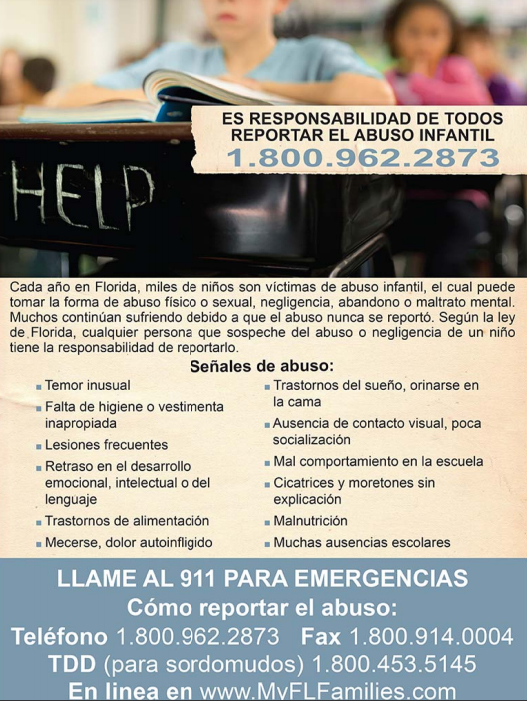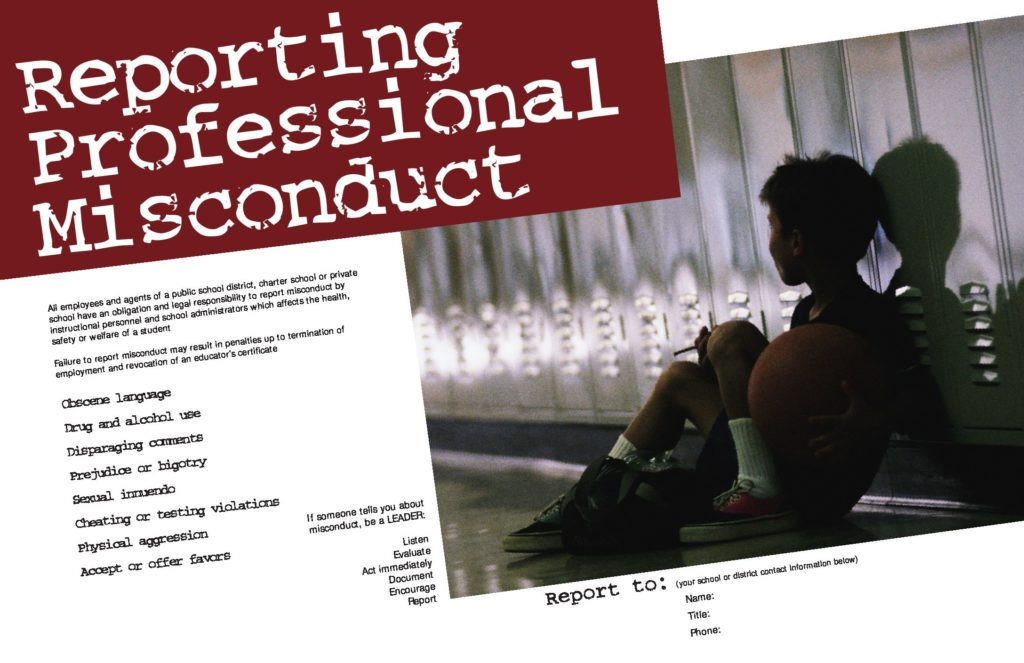Pine Castle Christian Academy 2021-2022 Ethical Conduct of Instructional Personnel and School Administration Policy
As a representative of Christ and PCCA, all personnel must demonstrate and uphold standards of ethical conduct both inside and outside the classroom. As an employee and role model to students, all personnel have a duty, at all times, to:
Abide by the Code of Ethics of the Education Profession in Florida (Rule 6B-1.001, F.A.C.)
- The educator values the worth and dignity of every person, the pursuit of truth, devotion to excellence, acquisition of knowledge, and the nurture of democratic citizenship. Essential to the achievement of these standards are the freedom to learn and to teach and the guarantee of equal opportunity for all.
- The educator’s primary professional concern will always be for the student and the development of the student’s potential. The educator will therefore strive for professional growth and seek to exercise the best professional judgment and integrity.
- Aware of the importance of maintaining the respect and confidence of one’s colleagues, of students, of parents, and of other members of the community, the educator strives to achieve and sustain the highest degree of ethical conduct.
Uphold the Principles of Professional Conduct for the Education Profession in Florida (Rule 6B-1.006, F.A.C.)
Obligation to the student requires that the individual:
- Shall make reasonable effort to protect the student from conditions harmful to learning and/or to the student’s mental and/or physical health and/or safety.
- Shall not unreasonably restrain a student from independent action in pursuit of learning.
- Shall not unreasonably deny a student access to diverse points of view.
- Shall not intentionally suppress or distort subject matter relevant to a student’s academic program.
- Shall not intentionally expose a student to unnecessary embarrassment or disparagement.
- Shall not intentionally violate or deny a student’s legal rights.
- Shall not harass or discriminate against any student on basis of race, color, religion, sex, age, national or ethnic origin, political beliefs, marital status, handicapping condition, sexual orientation, or social and family background and shall make reasonable effort to assure that each student is protected from harassment or discrimination.
- Shall not exploit a relationship with a student for personal gain or advantage.
- Shall keep in confidence personally identifiable information obtained in the course of professional service, unless disclosure serves professional purposes or is required by law.
Obligation to the public requires that the individual:
- Shall take reasonable precautions to distinguish between personal views and those of any educational institution or organization with which the individual is affiliated.
- Shall not intentionally distort or misrepresent facts concerning an educational matter in direct or indirect public expression.
- Shall not use institutional privileges for personal gain or advantage.
- Shall accept no gratuity, gift, or favor that might influence professional judgement.
- Shall offer no gratuity, gift, or favor to obtain special advantages.
Obligation to the profession of education requires that the individual:
- Shall maintain honesty in all professional dealings.
- Shall not on the basis of race, color, religion, sex, age, national or ethnic origin, political beliefs, marital status, handicapping condition if otherwise qualified, or social and family background deny to a colleague professional benefits or advantages or participation in any professional organization.
- Shall not interfere with a colleague’s exercise of political or civil rights and responsibilities.
- Shall not engage in harassment or discriminatory conduct which unreasonably interferes with an individual’s performance of professional or work responsibilities or with the orderly processes of education or which creates a hostile, intimidating, abusive, offensive, or oppressive environment; and, further, shall make reasonable effort to assure that each individual is protected from such harassment or discrimination.
- Shall not make malicious or intentionally false statements about a colleague.
- Shall not use coercive means or promise special treatment to influence professional judgments of colleagues.
- Shall not misrepresent one’s own professional qualifications.
- Shall not submit fraudulent information on any document in connection with professional activities.
- Shall not make any fraudulent statement or fail to disclose a material fact in one’s own or another’s application for professional position.
- Shall not withhold information regarding a position from an applicant or misrepresent an assignment or conditions of employment.
- Shall provide upon the request of the certificated individual a written statement of specific reason for recommendations that lead to the denial of increments, significant changes in employment, or termination of employment.
- Shall not assist entry into or continuance in the profession of any person known to be unqualified in accordance with the Principles of Professional Conduct for the Education Profession in Florida and other applicable Florida Statutes and State Board of Education Rules.
- Shall self-report within forty-eight (48) hours to appropriate authorities any arrests/charges involving the abuse of a child or the sale and/or possession of a controlled substance. Such notice shall not be considered an admission of guilt nor shall such notice be admissible for any purpose in any proceeding, civil or criminal, administrative or judicial, investigatory or adjudicatory. In addition, shall self-report any conviction, finding of guilt, withholding of adjudication, commitment to a pretrial diversion program, or entering of a plea of guilty or Nolo Contrendre for any criminal offense other than a minor traffic violation with forty-eight (48) hours after the final judgment. When handling sealed and expunged records disclosed under this rule, school districts shall comply with the confidentiality provisions of Sections 943.0585(4)(c) and 943.059(4)(c), Florida Statutes.
- Shall report to appropriate authorities any known allegation of a violation of the Florida School Code of State Board of Education Rules as defined in Section 1012.795(1), Florida Statutes.
- Shall seek no reprisal against any individual who has reported any allegations of a violation of the Florida School Code or State Board of Education Rules as defined in Section 1012.795(1), Florida Statutes.
- Shall comply with the conditions of an order of the Education Practices Commission.
- Shall, as the supervising administrator, cooperate with the Education Practices Commission in monitoring the probation of a subordinate.
Abide by all school policies and procedures with steadfast adherence to the following:
Immediately report known or suspected child abuse or neglect to the Florida Department of Children and Families Toll-Free Hotline (1-800-96-ABUSE).
In accordance with section 39.201, Florida Statutes, any person who knows, or has reasonable cause to suspect, that a child is abused, abandoned, or neglected by a parent, legal custodian, caregiver, or other person responsible for the child’s welfare, or that a child is in need of supervision and care and has no parent, legal custodian, or responsible adult relative immediately known and available to provide supervision and care shall report such knowledge or suspicion to the Department of Children and Families (DCF) Central Abuse Hotline at 1-800-96-ABUSE.
Instructional personnel and school administrators may report such information to DCF in unison, but reporting to another school employee does not fulfill the legal obligation to report to DCF.
A person who is required by statute to report known or suspected abuse or neglect and fails to do so, is subject to disciplinary action by the employer, by the State Department of Education and/or through criminal prosecution.
In section 39.01(2), Florida Statutes, the term “Abuse” means any willful act or threatened act that results in any physical, mental, or sexual injury or harm that causes or is likely to cause the child’s physical, mental, or emotional health to be significantly impaired. Abuse of a child includes acts or omissions. Corporal discipline of a child by a parent or legal custodian for disciplinary purposes does not in itself constitute abuse when it does not result in harm to the child.
In section 39.01(44), Florida Statutes, and act of “Neglect” occurs when a child is deprived of, or allowed to be deprived of, necessary food, clothing, shelter, or medical treatment or a child is permitted to live in an environment when such deprivation or environment causes the child’s physical, mental, or emotional health to be significantly impaired or to be in danger of being significantly impaired.
In section 39.01(47), Florida Statutes, “Other person responsible for a child’s welfare” includes the child’s legal guardian or foster parent; an employee of any school, public or private child day care center, residential home, institution, facility, or agency; a law enforcement officer employed in any facility, service, or program for children that is operated or contracted by the Department of Juvenile Justice; or any other person legally responsible for the child’s welfare in a residential setting; and also includes an adult sitter or relative entrusted with a child’s care.
In accordance with section 39.203, Florida Statutes, any person who reports in good faith any instance of child abuse, abandonment, or neglect to the Department of Children and Families or any law enforcement agency, shall be immune from any civil or criminal liability which might otherwise result by reason of such action.
Immediately report to Administration or School Board Chairman any alleged misconduct that affects the health, safety or welfare of a student, by other instructional personnel or school administrator.
In accordance with section 1012.795(1)(b) Florida Statutes, any instructional personnel or school administrator must report alleged misconduct that affects the health, safety or welfare of a student by instructional personnel or school administration. If instructional personnel or school administration have knowledge of a violation of section 1012.795 or the Principles of Professional Conduct or the district code of conduct, designated employees shall immediately report the nature of the misconduct to the Head of School and/or School Board Chairman.
Instructional personnel or school administrators who fail to report misconduct of other instructional personnel or school administrators that affect the health, safety or welfare of students shall be subject to disciplinary action up to and including termination of employment and revocation of their Florida Educator Certificate (if applicable).
Training Required
All instructional personnel and school administrators must engage in annual training on the standards of ethical conduct and the policy for reporting misconduct. Training must include examples of violations of the Code of Ethics and Principles of Professional Conduct and potential penalties, information on how to properly identify and report child abuse or neglect, procedures on how to report misconduct of other instructional personnel and school administrators, requirements of self-reporting criminal charges, the nature and consequences of disqualifying offenses, the importance of being a role model, and the fiduciary responsibility of being an educator.
Reports to the Office of Professional Practices Services (DOE)
Any violation of these standards of conduct may result in the information being reported to the Office of Professional Practices Services for investigation to determine if disciplinary action should be taken against an educator’s Florida Educator Certificate.
Liability Protections:
768.095 Employer immunity from liability; disclosure of information regarding former or current employees.–An employer who discloses information about a former or current employee to a prospective employer of the former or current employee upon request of the prospective employer or of the former or current employee is immune from civil liability for such disclosure or its consequences unless it is shown by clear and convincing evidence that the information disclosed by the former or current employer was knowingly false or violated any civil right of the former or current employee protected under chapter 760.
|
Title V JUDICIAL BRANCH |
Chapter 39 PROCEEDINGS RELATING TO CHILDREN | View Entire Chapter |
39.203 Immunity from liability in cases of child abuse, abandonment, or neglect.—
(1)(a) Any person, official, or institution participating in good faith in any act authorized or required by this chapter, or reporting in good faith any instance of child abuse, abandonment, or neglect to the department or any law enforcement agency, shall be immune from any civil or criminal liability which might otherwise result by reason of such action.
(b) Except as provided in this chapter, nothing contained in this section shall be deemed to grant immunity, civil or criminal, to any person suspected of having abused, abandoned, or neglected a child, or committed any illegal act upon or against a child.
(2)(a) No resident or employee of a facility serving children may be subjected to reprisal or discharge because of his or her actions in reporting abuse, abandonment, or neglect pursuant to the requirements of this section.
(b) Any person making a report under this section shall have a civil cause of action for appropriate compensatory and punitive damages against any person who causes detrimental changes in the employment status of such reporting party by reason of his or her making such report. Any detrimental change made in the residency or employment status of such person, including, but not limited to, discharge, termination, demotion, transfer, or reduction in pay or benefits or work privileges, or negative evaluations within a prescribed period of time shall establish a rebuttable presumption that such action was retaliatory.






